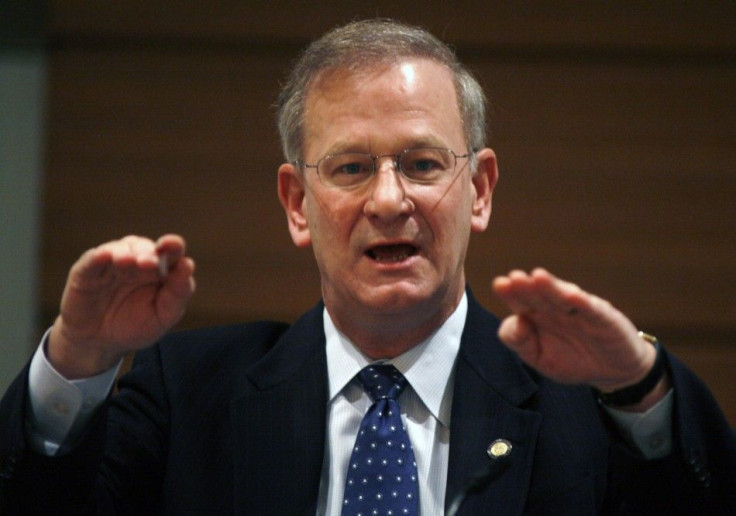Under Hoenig, Will ‘Too Big To Fail’ Banks Become Too Big?
ANALYSIS

Is the era of big banks about to come to an end?
It may be too soon to suggest that, but one thing is clear: now that Thomas Hoenig, retired chairman of Federal Reserve Bank of Kansas City has been nominated by the White House to become the new vice chairman of the Federal Deposit Insurance Corporation, the role of big banks in the U.S. economic system will be under review.
Hoenig has said that financial institutions that are so big that their failure could jeopardize the financial system are fundamentally inconsistent with capitalism.
The Role of SiFis
Big banks, formally SiFis (systemically important financial institutions) in the monetary policy vocabulary, are inherently destabilizing to global markets, Hoenig argues.
They [SiFis] are inherently destabilizing to global markets and detrimental to world growth, Hoenig said in a June speech. So long as the concept of a SIFI exists, and there are institutions so powerful and considered so important that they require special support and different rules, the future of capitalism is at risk and our market economy is in peril.
In other words, too big to fail may be too big for Hoenig. But until Hoenig rules as such (and assuming Senate confirmation of this nomination), one cannot say the era of big banks is ending.
Hoeing has also advocated imposing limits on big banks' activities and reinstituting the barrier between commercial banks and investment banks.
Hoenig, 65, who recently retired as president of the Kansas City Fed after 20 years, has so far been best known for his dissents to U.S. Federal Reserve monetary policy, including both conventional (interest rates) and unconventional (the Fed's quantitative easing program) policies. Hoenig dissented eight straight times on the Fed -- tieing a record held by Gov. Henry Wallich in 1980 for most Fed dissents in a year.
Regarding monetary policy, as a voting member of the Federal Open Market Committee (FOMC), Hoenig opposed the Chairman Ben Bernanke-led Fed's statement -- which articulates Fed policy decisions -- to keep interest rates exceptionally low for an extended period.
Regarding quantitative easing, Hoenig opposed decisions to reinvest proceeds from maturing mortgage-backed securities, and a $600 billion round of bond purchases.
Monetary/Economic Analysis: The view from here argues that the Obama administration's nomination of Hoenig as FDIC vice chairman is a superior choice. In Hoenig, the nation is getting an experienced, big picture-savvy economics and monetary professional who will ask tough questions about the structure of the U.S. banking system -- including the difficult issue of size.
© Copyright IBTimes 2024. All rights reserved.





















